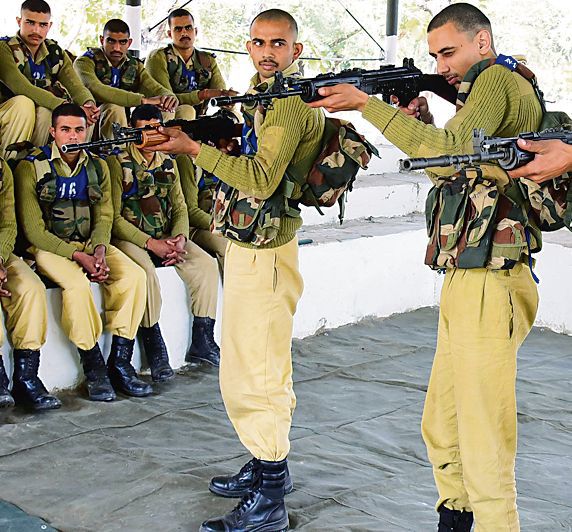‘Don’t tinker with old system’: Veterans flag Agnipath ‘flaws’
Vijay Mohan
Chandigarh, July 27
Even as Prime Minister Narendra Modi’s remarks on Kargil Vijay Diwas at Dras, defending the Agnipath scheme for short-term recruitment into the armed forces drew sharp reactions from politicians, the defence community has flagged several functional issues relating to the new system.
Areas of concern
- Veterans feel recent incidents of Agniveers reportedly being involved in criminal activities is “just the tip of the iceberg”
- Vacancies reserved for ex-servicemen in government departments largely go unfilled for several reasons
- Agniveers’ inability to get decent post-release employment may lead to frustration
The scheme, which came into effect in 2022, envisions initial recruitment into the rank and file of the three services for a four-year term, after which 25 per cent of Agniveers will be absorbed into the permanent cadre while the remaining will be released from the service with some financial benefits.
Uncertainty of absorption
The uncertainty of getting absorbed after four years can also be a double-edged weapon. It can either motivate a person to perform exceedingly well or deviate his focus from the job at hand. Maj Gen IP Singh (retd)
The idea behind the scheme was to keep the age profile of the armed forces young, and also to reduce the burgeoning pension bill. The scheme has kicked up an intense debate in the political as well as military circles, with calls from several quarters for its review.
Some veterans said the first cycle of Agniveer recruitment was still not complete and the full effect of the scheme was yet to be seen. Some also said in the interest of operational efficiency, the initial tenure needs to be increased. “There is a stipulated time period required for a soldier to develop the necessary skills, confidence and gel with his team to be able to perform effectively in difficult situations,” said Maj Gen IP Singh (retd), a former director of the Mai Bhago Armed Forces Preparatory Institute that prepares students to opt for a career as commissioned officers.
“The uncertainty of getting absorbed after four years can also be a double-edged weapon. It can either motivate a person to perform exceedingly well or deviate his focus from the job at hand,” he added, while saying the first cycle of Agniveer intake was still not complete to be able to show the effects of the scheme.
He was also of the view that India’s security paradigm with several challenges calls for a well-trained and motivated force of high-grade soldiers and it might not be a good idea to tinker with the time-tested and age-old systems.
At present, 46,000 Agniveers are being recruited annually, this will go up to 1.75 lakh in the next four to five years. According to veterans, in about 10-12 years, about 66 per cent of the force will comprise Agniveers.
“It is this 66 per cent that will drive the ethos of the force,” Brig IS Gakhal (retd), a former Commandant of the Sikh Regimental Centre, said. The training of Agniveers is of about six months. “Earlier, a recruit used to undergo basic training for nine months, followed by grooming as a soldier in the unit for the first about two years. In the fifth or sixth year of his service, he used to be sent for advanced courses. It took seven to eight years for an individual to be an effective soldier who could be given independent operational tasks. Agniveers will require greater supervision and hand-holding,” he added.
Some officers are of the opinion that the issue of training and availability of technical manpower is more pronounced in the Air Force and the Navy, which are highly technical given their combat platforms.
Veterans also feel that the recent incidents of Agniveers reportedly being involved in criminal activities is “just the tip of the iceberg”. Vacancies reserved for ex-servicemen in various government departments largely go unfilled for several reasons and inability to get decent post-release employment may lead to frustration.









